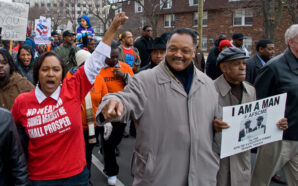Sunita Sohrabji
American Community Media
Seventeen organizations that support victims and survivors of domestic violence have jointly filed a lawsuit against US Attorney General Pam Bondi and the Justice Department, saying that new certification requirements impair their ability to provide services to all who need them.
Shortly after taking office, President Donald Trump issued an executive order effectively ending diversity, equity, inclusion, and accessibility — DEIA, formerly DEI — initiatives at all levels of federal government. The order stipulated that agencies and grantee organizations must certify that they do not operate any programs promoting DEIA.
In a Feb. 5 memo, Attorney General Pam Bondi stated that the Justice Department will “aggressively investigate organizations who continue illegal DEI or DEIA preferences.”
New Funding Criteria
On June 12, the Office on Violence Against Women issued new funding conditions. OVW manages federal Violence Against Women Act funding for non-profit organizations engaged in supporting and preventing domestic violence. The new criteria for certifications include:
- Not violating federal law by supporting undocumented immigrants
- Not prioritizing initiatives that prioritize undocumented immigrants for services and support
- Recognizing only two sexes: women who are biologically female and men who are biologically male; and not promoting gender ideology
- Recognizing domestic violence as a criminal offense and not promoting activities that frame DV as a systemic social justice issue
- Prioritizing programs that collaborate with law enforcement
- Funds cannot be used for generic community engagement, economic development, or research projects
Grantees of VAWA funds must now submit letters on a periodic basis certifying that they are in compliance with anti-DEI measures. Congress has approved VAWA funding for the past 31 years, largely in a bi-partisan manner.
In a lawsuit filed June 16 in the US District Court of Rhode Island, 17 recipients of VAWA grants stated that the new criteria for funding places them in “an impossible position.”
Staff and Program Cuts
”They must choose between forgoing funding essential to their ability to fulfill their missions or accept and certify compliance with conditions that are in tension with their statutory duties and at odds with their missions and values,” stated the organizations in their lawsuit.
If they lose VAWA funding, many non-profit organizations say they will have to cut programs and staff, drastically reducing their abilities to provide services and support to victims and survivors of domestic violence.
“Instead of discriminating against survivors for their gender identity and immigration status, OVW grants should open the way to safety, healing and services for every one of the millions of Californians looking for help during the most dangerous and traumatic times of their lives,” said Krista Colón, Executive Director of the California Partnership to End Domestic Violence. The CPEDV is one of the plaintiffs in the lawsuit.
“With the need for services already far outpacing available resources, programs deserve funding that makes it easier to do their work, not harder. And yet, these grant conditions have stoked fear and uncertainty among advocates, who now run the risk of harsh penalties unless they promise to ignore survivors experiencing abuse,” said Colón.
Asian American Survivors
Patima Komolamit, executive director of the Center for the Pacific Asian Family, said VAWA funding is essential to the work of her organization. CPAF — one of the few DV organizations that provides DV services in several Asian languages — runs a transitional housing program, which provides a home and services to 14 survivors and their children for up to 1 year. The organization also runs an emergency shelter, which is one of the first shelters in the region for Asian Pacific Islander survivors.
In 2024, CPAF supported 205 non-residential clients: 59 adults and children in their emergency shelter and 67 adults and children in transitional shelter programs. The organization also supported 1800 victims who came in via calls to their hotline. CPAF’s prevention work reached an additional 4,700 people.
VAWA grants represent 13% of CPAF’s total funding. The organization received a little over $2.5 million last year to support 5 initiatives over 3 years.
The new certification criteria are a conundrum for Komolamit and her team. “We serve across ethnic lines, cultural lines, colors: the most vulnerable. So what we’re looking at now is what is the core of our mission? And is what we have been doing in alignment or out of alignment of what these certifications are?”
Engaging Men
A very necessary grant for prevention is one that supports engaging men. But the criteria for that grant, explained Komolamit, is that programs “do not frame males as inherently dangerous, violent, discriminatory, intolerant, or harmful solely by reason of their sex or expression of masculinity, including programs focused on toxic masculinity, sexism, implicit bias, or any related concepts.”
“So this is where it’s a struggle to kind of figure out: we want to ensure that there are positive male role models. And we want to ensure that our young men understand that there is a world full of love and nourishment, but you also have very hurt individuals,” she said.
The criteria of not framing DV as a systemic social justice issue is problematic, because it does not allow men to understand their behavior in a larger context, Komolamit added.
Immigrants
Not being able to prioritize immigrant populations is also problematic, said Komolamit, noting there are 1.6 million Asian Pacific Islanders in Los Angeles County. “People who have limited English proficiency are not able to find services in their language. So of course they’re going to come to us. We were created out of a need and that need continues to evolve,” said Komolamit.
“We do great work. We save lives, we’re reducing homelessness. We’re hoping that that is really what comes across,” she said.





